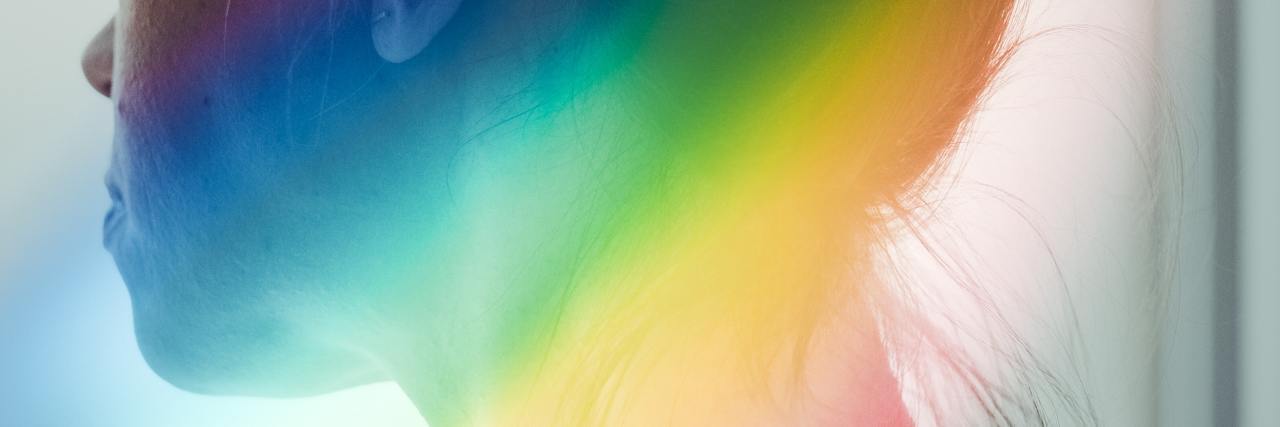As Pride Month commences in June, celebrating the LGBTQIA+ community, I always find it a good time to reflect on my own coming out story. I think about how I was forced out of the closet before I was ready. I think about how that terrified 17-year-old girl transformed into a confident member of the LGBTQIA+ community. I think about how, even today, I’m not quite sure how that happened.
When I was 17, in a therapy session, I disclosed that I kissed a girl and frequently experimented with other female classmates I knew who were gay or bisexual. Unfortunately, my therapist at the time did not take the best approach at handling this. Since I was 17 and a minor, she insisted that my mom had to know I was gay.
“You can’t kiss girls and just not tell your mom about it,” she scolded.
So, she called my mom in for a family session. Except, I wasn’t ready to come out. In fact, I was still in denial that I was even gay. I had a strong Catholic upbringing, so I thought maybe I just wanted attention. Maybe I just liked kissing girls. Kissing girls didn’t mean that I’m gay, though.
But nonetheless, my therapist explained the situation to my mom in what I recall as the most cringeworthy family session of my life. And my mom didn’t take the best approach to affirming my sexuality. She doubted the validity of it all and said that it’s OK if I’m gay, but I shouldn’t tell anyone in my family.
I was devastated by the outcome of that session. It made me doubt not only my sexuality, but who I was as a person. It triggered both a mental health crisis and an identity crisis that both intertwined, causing me to be hospitalized multiple times because I no longer knew who I was. Or rather, I did, but I was being subtly told that I shouldn’t be that person.
It triggered shame, depression and mass amounts of anxiety that I still have to this day, although I now know how to cope with it. I spent most days isolating from everyone in my bed while browsing social media sites where I met other LGBTQIA+ friends. But even then, I still felt immeasurably lonely. It was nice to be accepted by strangers on the internet, sure, but I couldn’t shake the sadness that my own family was trying to “convince the gay out of me” with things like, “Are you sure this is the life path you want to choose?” And, “It’s not too late to welcome God back into your life.” The isolation I felt during those times was excruciating.
So, for a while, I crawled myself back into the closet and pretended the whole thing never happened. But eventually, I had to confront my truth. So, to affirm myself, I felt the need to chop off my long hair, dress more masculinely, and dismiss my feminine side. I felt the need to “prove” I was gay. I felt the need to prove it to my family and, admittedly, I felt the need to prove it to myself. There was still so much shame and repulsion that came with being a lesbian and I had to combat it in the only way I could — fitting into the most common “lesbian stereotype.”
It wasn’t until I turned 22 that I was able to have enough confidence to truly be who I’d always wanted to be. I could say the word “lesbian,” and for years, my social media username had some form of “queerness” in it, as if to let the world know in advance, “Before you come any closer, this is who I am. I’m gay.” I grew my hair out again, and became the authentic version of myself — not who others wanted me to be.
And, just to give this story that started with a horrible way of coming out a happy ending, I feel the need to add that last July, I had the happiest day of my lifetime. I got married to the love of my life, who has now come out as a trans man — which brought on a whole new wave of questioning my sexuality for a second time. Now, if I have to label myself, I’d say I’m bisexual, but the label of being queer feels more affirming to me. It feels more authentic. It’s who I’ve always been and always will be: queer.
So, yes. Not everyone has the best coming out story. In my case, my coming out journey only led to more confusion, anxiety, and a whole identity crisis. But that doesn’t mean my entire journey was doomed, despite what I thought at 17.
My mom accepts me now and is doing her best to call my husband by his preferred pronouns and name. My entire family is aware that I’m queer, and while not everyone is happy about it, they’re still supportive. And somehow, I found the most amazing husband through it all, who has affirmed my sexuality from our first date as lesbians until now, when I identify as bisexual and he identifies as a straight male.
Even if your coming out story wasn’t what you wanted, just know that things will (eventually) get better. And it’s OK if you want to go back in the closet for a while, too. There’s nothing wrong with still questioning your sexuality, even after someone outed you. When you’re ready, the LGBTQIA+ community will be here to greet you with open arms, acceptance and an abundance of love. But first, take your time. Let yourself be ready for that. The rest of the world can wait.
Photo by Johannes Krupinski on Unsplash

